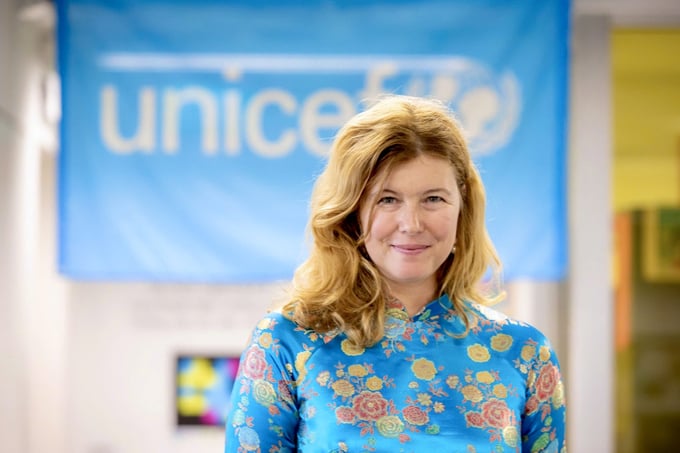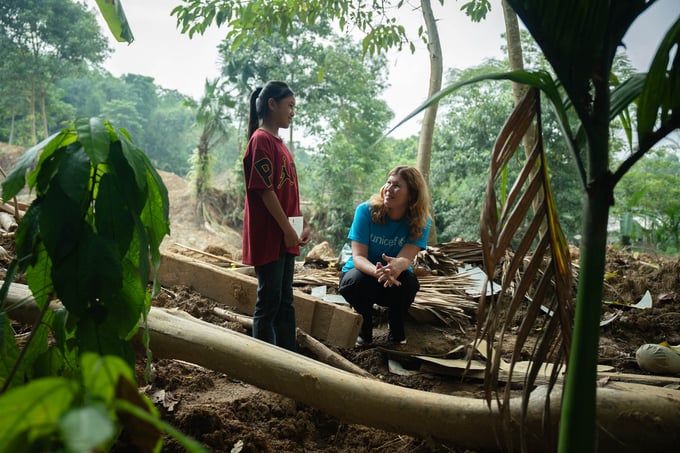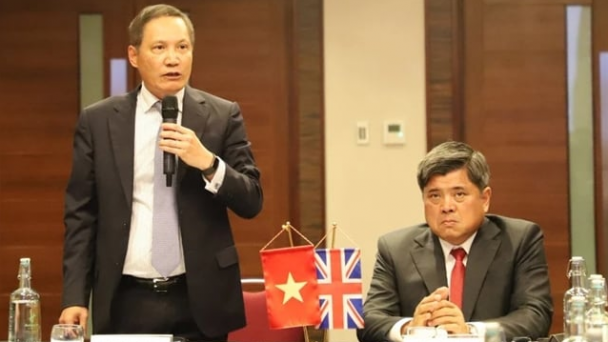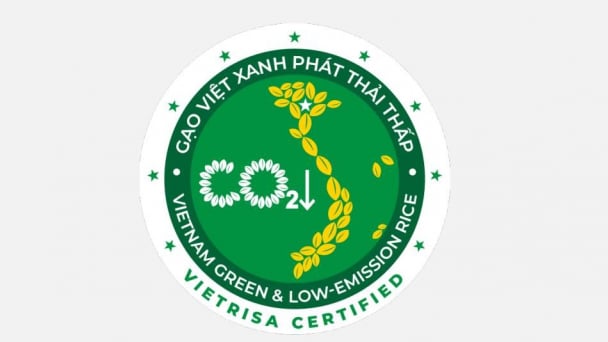May 16, 2025 | 05:22 GMT +7
May 16, 2025 | 05:22 GMT +7
Hotline: 0913.378.918
May 16, 2025 | 05:22 GMT +7
Hotline: 0913.378.918

Ms. Silvia Danailov, Representative of the United Nations Children's Fund (UNICEF) in Vietnam. Photo: UNICEF Vietnam.
We are currently witnessing significant government restructuring efforts aimed at increasing efficiency. UNICEF welcomes these efforts and is optimistic that the proposed changes will provide positive opportunities for the people in Vietnam, including children and women.
This structural reform aligns with Vietnam’s commitment to inclusive, sustainable development and partnership in line with the UN 2030 Sustainable development Goals (SDGs) and to strengthen government capacities and expertise at all levels.
The merger of the Ministry of Agriculture and Rural Development (MARD) and the Ministry of Natural Resources and Environment (MONRE) into the newly formed Ministry of Agriculture and Environment presents opportunities to enhance policy and program coherence and efficiency in key areas such as environmental protection, disaster risk management and climate action (SDG 13), clean water and sanitation (SDG 6) and poverty reduction (SDG 1).
One of the advantages of this restructuring is more coherent coordination between policies and programs. The consolidation of climate resilience, disaster risk reduction, emergency preparedness, water resource management and poverty reduction under a single ministry allows for better coordination of policies and programmes.
This is particularly important given the high vulnerability of Vietnam to climate change and the link with poverty – more coherent policies will help improve efforts to reach those most in need, especially children and vulnerable communities.
Secondly, the merger presents a unified approach will optimize resources utilization, reduce transaction costs and facilitate smoother and faster policy and program implementation. This will allow Vietnam to accelerate efforts in climate adaptation and mitigation and reduce fragmentation in water management or disaster risk management and poverty reduction – all key for Viet Nam to achieve its ambition to reach Net Zero Emissions and high-income status by 2045.
For areas with interference between the two Ministries before the merger, the integration of weather forecasting systems, disaster risk reduction and response preparation will help strengthen the early warning system. As a result, Vietnam can be more proactive in protecting the community, associated with social protection policies. The way UNICEF and the Vietnamese Government cooperate to provide relief after Typhoon Yagi is a clear demonstration for this mutual effort.
But not only in the immediate response, new structure creates a more integrated approach to water supply management, benefiting both agricultural productivity and the sustainability of water resources, efficiency use of water, coordinated water resource management, improved water quality with environmental sustainability efforts, thereby ensuring sustainable and safely managed water services for children.

UNICEF is committed that children are always at the center of all international support activities. Photo: UNICEF Vietnam.
While this merger presents numerous benefits, its also critical to acknowledge potential challenges that could arise during the transition period. Like any structural transition, there may be a short period of adjustment as teams and responsibilities are realigned.
However, UNICEF is confident that with Vietnam’s strong leadership and determination, these challenges will be quickly overcome, leading to a more effective system. The most important factor will be ensuring a smooth transition process with clear roles and responsibilities to maximize the benefits of the merger.
It's equally important to strengthen implementation at the provincial level. Providing local authorities with clear guidance, technical training, and resources will ensure a smooth transition from national to local level, translating national policies into effective community-level action, particularly for children and vulnerable populations.
Lastly, it's crucial to maintain a child-centered approach. By prioritizing children's needs and rights in national strategies for disaster risk reduction, climate resilience, water resource management, and poverty reduction, we can better prepare schools, healthcare facilities, and communities for climate risks and effectively address multi-dimensional poverty.
I would like to briefly mention 5 areas where UNICEF will continue to support agriculture and the environment: Integration child-centered policies; Enhancing early warning systems, preparedness and emergency response mechanisms; Expanding climate-resilient water, sanitation and hygiene (WASH) services; Strengthening provincial and community-level resilience; Leveraging global expertise and financing.
UNICEF strongly believes that the merger of MARD and MONRE into the new Ministry of Agriculture and Environment provides opportunities for ensuring that children’s rights are placed at the centre of Vietnam’s inclusive, green and digital transformation efforts – hopefully resulting in better-aligned policies, stronger disaster resilience, and improved access to clean water and sanitation and reduced poverty for children.
While there may be short-term adjustments, Vietnam’s strong leadership, determination and commitment to efficiency will ensure that this transition quickly delivers long-term benefits for children.
UNICEF looks forward to working even more closely with the Government to accelerate climate action, enhance disaster preparedness, and strengthen WASH and social protection services, ensuring a safer, healthier, and more inclusive and resilient future for all children in Vietnam.
Translated by Quynh Chi

(VAN) Veterinary training should focus on quality, not just quantity. Veterinarians also need more options to pursue specialized training.

(VAN) The veterinary industry needs to be viewed objectively and further invested in to properly demonstrate its role and importance in the new context.

(VAN) The number of veterinarians graduating each year is not enough to meet actual needs, hence a difficult problem for the growing livestock industry.

(VAN) The strategic partnership between Cambodia, the Philippines, Vietnam, and CGIAR ensures that innovative solutions effectively address national priorities for food system development.

(VAN) This was affirmed by the UK Minister of State at the Department for Environment, Food and Rural Affairs during a working session with Deputy Minister Tran Thanh Nam on May 13.

(VAN) On May 13, the Ministry of Agriculture and Environment, in coordination with the Embassy of Vietnam in the United Kingdom, organized a seminar titled 'Connecting trade in Vietnam-UK agricultural, forestry, and fishery products'.

(VAN) The launch of the Vietnam green and low-emission rice brand is a positive signal for both businesses and farmers, marking readiness to reach new heights in the global market.